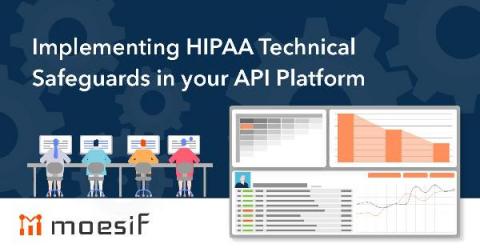Systems | Development | Analytics | API | Testing
Healthcare
Partnering with Appian to Put Patients First: Ignyte's Mental Health Case Management Solution
A year of virtual meetings, homeschooling, and social distancing has taken a toll on all of us. According to a 2021 article from the Kaiser Family Foundation, around 40% of Americans have reported symptoms of depression and anxiety during the COVID-19 pandemic. Mental health providers worldwide are struggling to meet increased patient demand while navigating increased telehealth needs.
What is HIPAA, and Why is It Important?
Healthcare information is perhaps the most important data in our lives. Your health records can contain your medical history, results of tests and scans, and details of current health insurance. This data is a special class of personally identifiable information, and HIPAA is the law that protects it.
Data health, from prognosis to treatment
When we talk about a healthy lifestyle, we know it takes more than diet and exercise. A lifelong practice of health requires discipline, logistics, and equipment. It is the same for data health: if you don’t have the infrastructure that supports all your health programs, those programs become moot.
Grifols: Creating Flexibility and Speed through a Unified Data System
Solving the Right Data Problem. Finally.
In late 2020, a CEO at an American bank revealed the thinking that’s becoming common in many businesses these days. “We’re a 103-year-old bank,” their CEO told me. “We’re doing everything on spreadsheets. But we are trying to become a highly profitable, digital-first bank that anticipates financial needs and empowers our clients with frictionless experiences. We need to become a data company.”
5 Elements of Workplace Safety from Healthcare Leaders
As COVID-19 vaccinations continue to roll out, organizations across industries prepare to return employees to the workplace. It’s a journey fraught with anxieties, uncertainty, and unknowns. In a recent poll of Appian webinar participants, a mere 17% reported that their companies feel fully prepared to reopen facilities, and only 51% said they felt even “somewhat” prepared. The good news is that a safe return to the workplace is not uncharted territory.
Implementing HIPAA Technical Safeguards in your API Platform
The Health Insurance Portability and Accountability Act, or HIPAA for short, is a set of laws around handling health-related data in information systems. It defines safeguards, which are rules you have to follow when handling health data for your customers. There are three safeguard categories: All three categories have to be handled correctly if you want your API to be HIPAA compliant. In a companion article we covered those key requirements and how to build HIPAA complaint API platforms.









